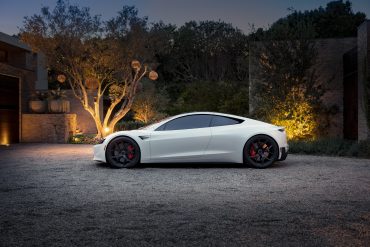
- Mobility Tech
Tesla Target Cut Highlights EV Sector Weakness
5 minute read

Tesla stock price target reduction reflects growing electric vehicle market challenges and declining global sales momentum
Key Takeaways
- Mizuho cuts Tesla price target to $375 from $390 while maintaining “Outperform” rating, citing global sales difficulties and weakened U.S. battery electric vehicle growth outlook
- Tesla shares drop nearly 5% following the announcement, despite the revised target still implying significant upside from current trading levels around $250
- Revenue forecasts slashed for 2025-2027 with full-year 2025 expectations reduced to $91 billion from $91.7 billion, falling short of consensus estimates of $95.9 billion
Introduction
Tesla faces mounting pressure as another major investment firm reduces its price expectations amid weakening global demand for electric vehicles. Mizuho Securities has lowered its price target for Tesla to $375 from $390, reflecting concerns about the company’s ability to navigate slowing sales and policy headwinds in key markets.
The downgrade comes as Tesla grapples with declining sales across multiple regions and uncertainty surrounding U.S. federal incentives for electric vehicles. Despite maintaining an “Outperform” rating, Mizuho’s revised outlook signals growing caution about Tesla’s near-term prospects in an increasingly competitive EV landscape.
Key Developments
Mizuho analyst Vijay Rakesh cited Tesla’s second-quarter global sales decline as evidence of intensifying “brand headwinds” affecting the company’s market position. The firm has reduced delivery expectations to 1.8 million vehicles for 2025, down from previous projections, while maintaining that Tesla’s long-term growth prospects remain intact.
The revised forecasts reflect broader challenges facing the electric vehicle sector, including the pending expiration of U.S. Inflation Reduction Act incentives and new tariff uncertainties. According to Investing.com, UBS estimates an 11% drop in 2025 deliveries as these policy changes take effect.
Tesla’s performance has deteriorated significantly in key European markets, with sales falling 45% in January and declining 41% in the top nine European markets in February. The company has also underperformed in both the U.S. and China markets recently.
Market Impact
Tesla shares dropped nearly 5% following Mizuho’s announcement, demonstrating investor sensitivity to analyst revisions despite the target remaining well above current trading levels. The stock closed at $249.98, making Mizuho’s $375 target represent a potential 50% upside.
The consensus price target across major firms now stands at $318.22, implying a 36.1% upside from current levels. This reflects a mixed analyst outlook, with some firms like Wells Fargo presenting more bearish views with targets as low as $130.
Mizuho’s valuation uses a multiple of 11.2 times its 2026 sales forecast, positioning slightly above Tesla’s five-year average. This methodology suggests the firm views current market conditions as temporary rather than structural challenges.
Strategic Insights
Tesla’s challenges extend beyond traditional automotive metrics to include brand perception issues stemming from CEO Elon Musk’s political involvement. His role in the Trump administration’s Department of Government Efficiency has sparked protests, affecting consumer sentiment in key demographics.
The company maintains its leadership position in the U.S. electric vehicle market while expanding autonomous driving capabilities through robotaxi operations in Texas. These technological advances provide differentiation as traditional automakers increase their EV offerings.
Regional dynamics present both opportunities and challenges for Tesla’s global strategy. While U.S. demand softens, China’s EV market remains robust supported by approximately $42 billion in national subsidies, and European BEV registrations have risen 25% year-to-date through May.
Expert Opinions and Data
Wedbush Securities analyst Dan Ives has highlighted investor frustrations over Musk’s apparent absence from Tesla facilities, noting its impact on sentiment. The analyst community remains divided on Tesla’s trajectory, with some maintaining optimism about long-term innovation potential.
Mizuho analysts acknowledge that Tesla faces “deterioration in geopolitics” and shifting brand perception challenges. Despite these headwinds, the firm’s revenue projections of $118 billion for 2026 reflect confidence in Tesla’s ability to expand production capacity.
Industry experts point to Tesla’s planned lower-cost Model Y variant, codenamed “E41,” expected to be 20% cheaper to manufacture at the Shanghai factory. This cost reduction strategy aims to address competitive pressure from Chinese EV manufacturers.
Conclusion
Tesla navigates a complex environment of policy uncertainty, intensifying competition, and brand challenges while maintaining technological leadership in electric vehicles and autonomous driving. The company’s global production strategy and innovation pipeline provide foundations for long-term growth despite near-term headwinds.
Mizuho’s revised but still optimistic price target reflects the investment community’s cautious confidence in Tesla’s ability to overcome current obstacles. The firm’s maintained “Outperform” rating signals belief that Tesla’s market position and technological advantages will ultimately drive value creation for investors.








